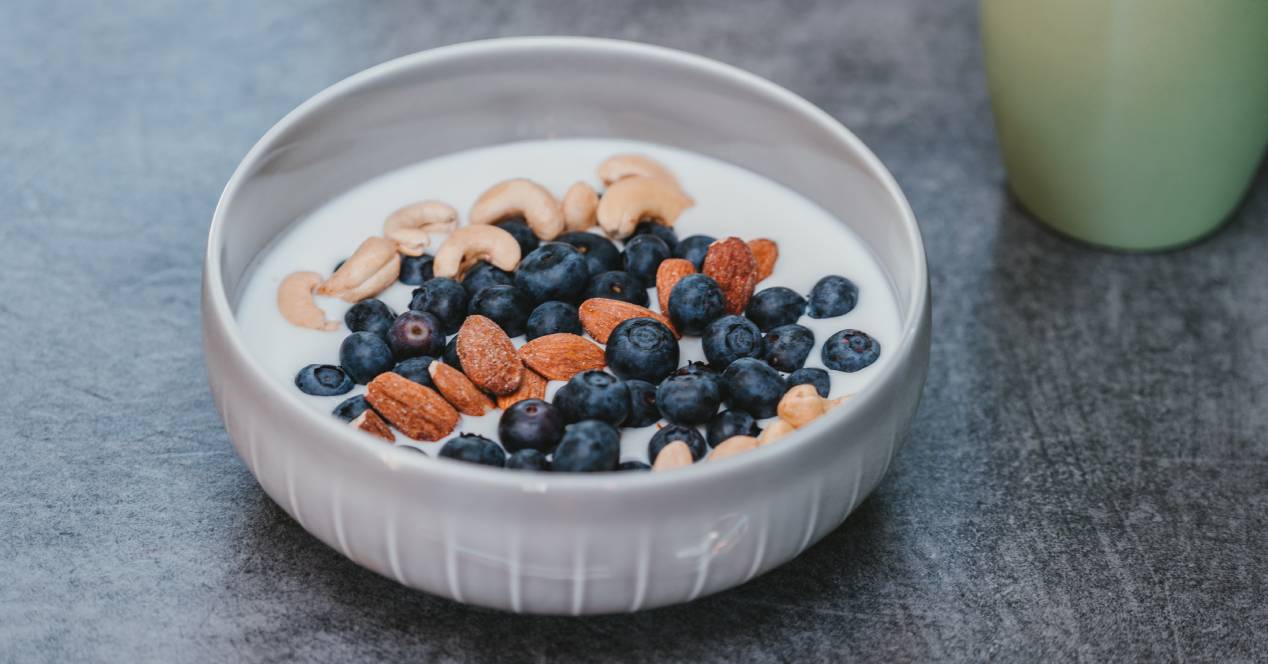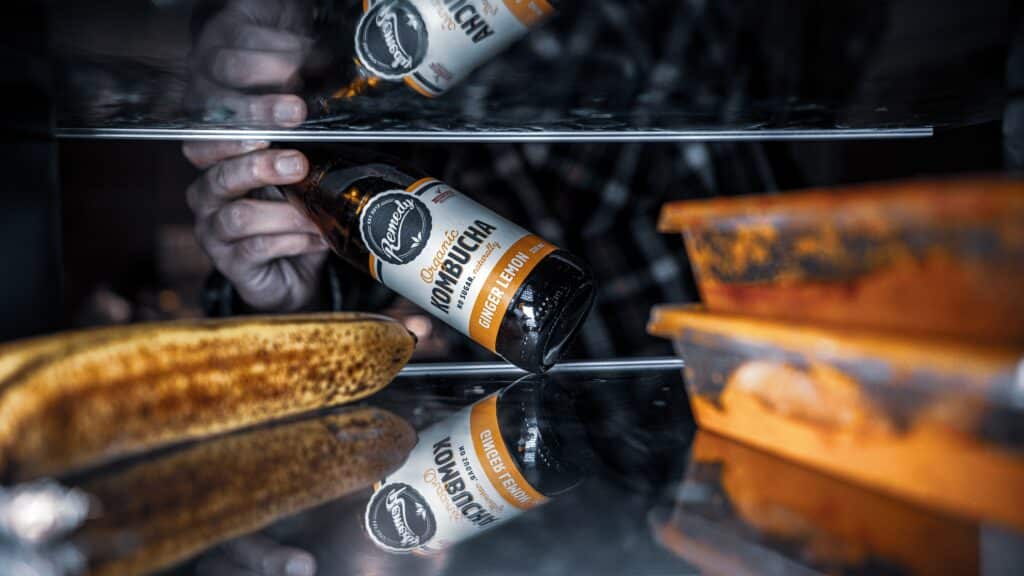
Gut health is pretty shaky (who would have thought?), and probiotics, while certainly a big part of an optimal microbiome, seem to have been added to everything lately. But what exactly are they? Are they really as important as they say?
Probiotics get their good reputation for benefiting gut health, but they can potentially help your entire body. Although they are a natural part of the human system, increasing their intake, through food or supplements, can be a good way to improve health.
What are probiotics?
Conclusion live microorganisms (or microbes) that naturally exist in the gastrointestinal tract and are also found in some foods. Contrary to popular belief, probiotics are bacteria and/or yeast, not whole foods. That is, certain foods contain them, but they are not probiotics themselves.
They are considered the type of "good" bacteria. This is because they confer countless health benefits, such as improved digestion and immunity, according to Harvard Health Publishing.
The intestine (small and large) naturally harbors good bacteria, the probiotics, and bad bacteria, such as a bacterial strain that induces severe diarrhea and inflammation in the colon. The intestine generally contains about 100 trillion bacteria. That sounds like a lot, right?
Services
One of the most obvious advantages of probiotics is their ability to keep the microbiome in balance. When you get sick, there is an increase in the amount of pathogenic or bad bacteria hanging out in your digestive tract. Probiotics help eliminate bad bacteria and restore a healthy ratio of good to bad bacteria within the gut.
Science has already shown that gut health likely:
Improves oral health
Our mouths are no stranger to bacteria, but adding more of the good kind seems to have some payoff. Science suggests that probiotics can help eliminate bad breath.
Oral probiotics, including the K12 and M18 strains of Streptococcus salivarius, are involved in fighting the growth of bacteria associated with halitosis. After one week of using probiotic lozenges, 85 percent of study participants showed a reduction in volatile sulfur compounds associated with bad breath.
Stinky odors aren't the only mouth-related condition that probiotics can combat. An October 2009 pilot study in Clinical Periodontology tested the effect of drinking probiotic milk daily for eight weeks and found that those who drank probiotics saw a decreased inflammation of the gums.
Regulates metabolism and digestion
Bacteria in the gut are responsible for converting indigestible carbohydrates, or fiber, consumed in the diet into short-chain fatty acids that serve as a fuel source for intestinal cells and can also prevent intestinal disorders.
There is a lot of promise surrounding the digestive health benefits of probiotics. They can balance the intestinal microflora and potentially mediate bloating, diarrhea, or constipation. can help prevent diarrhea associated with antibiotics and periodontal disease and help induce or maintain remission of ulcerative colitis.
It's really important to think about the type of probiotic strain you take, as the wrong type can make your condition worse. Probiotics are not a one-size-fits-all remedy because everyone's microbiome is different. For this reason, it's best to speak with a gastroenterologist and dietitian to determine if fermented foods or supplements are appropriate for you.
Taking probiotics can provide the body with more good-for-you bacteria, which can help restore balance in the gut. Also, they have the potential to relieve constipation.
Prevent obesity
Some research has linked a reduction in microbial diversity in the gut with an increased risk of obesity. The findings on probiotics and weight are a bit mixed, but certain probiotics can be a useful tool for weight loss and belly fat reduction.
A strain called Lactobacillus gasseri it can slow down the absorption of dietary fat and instead increase the amount of fat excreted by the body.
Eating yogurt with the probiotic Lactobacillus fermentum or Lactobacillus amylovorus is linked to a three to four percent reduction in body fat over a six-week period. Although probiotics for weight loss may sound auspicious, certain strains of probiotics are linked to promoting weight gain, according to an August 2012 microbial pathogenesis study.
Maintains heart health
There is evidence that they can give your heart the cleanse you've been beating for.
For people with high cholesterol, certain strains of probiotics, such as Lactobacilli, can help prevent cholesterol production and break down the excess that already exists. Lactobacillus probiotics significantly lowered total cholesterol and LDL cholesterol (the bad kind) levels in a June 2017 study review published in PLOS One.
They can also have a positive effect on blood pressure. People who drank a drink containing the probiotic L. plantarum every day for six weeks saw a significant reduction in blood pressure levels, while levels in control groups remained unchanged.
Although more research is needed to understand the exact impact of the gut microbiome when it comes to heart health, we now know that our gut affects more than just digestion.
Helps maintain blood sugar. A higher concentration of certain bacterial strains in the gut has been linked to a higher risk of type 2 diabetes, while others have been linked to a lower risk.
Contributes to mental health
For example, probiotics can increase the body's production of mood-enhancing hormones like serotonin.
You may have heard of the gut-brain connection, a term used to describe the link between our microbiota and our brain. Although the science is still in its early stages, emerging studies suggest that probiotics may have a beneficial effect on mental health.
An August 2017 study, published in the journal Gastroenterology, found that 64 percent of participants with irritable bowel syndrome (IBS) and mild to moderate anxiety and/or depression who took a probiotic supplement every day for six weeks reported a decrease in depression symptoms during that time.
Only 32 percent of people who took an inactive placebo showed similar results. The study also showed, with MRI scans, that those taking the probiotic had greater changes in the parts of the brain that deal with mood. The findings suggest that they may have antidepressant properties, the researchers note.
There isn't a lot of evidence about what happens to the brain after taking probiotics for a short period of time, but research has seen more immediate positive effects from taking the bacteria.

What are the best probiotic foods?
The gut microbiome is literally and figuratively at the core of overall health, so eating foods that are good for the microbiome is good for your health.
Probiotics occur naturally in some fermented foodshowever, they can also be added to food. The different groups of probiotic bacteria and yeast that you may see on food labels include Lactobacillus, Bifidobacterium and Saccharomyces boulardii.
Eat these foods, which have natural probiotics:
- Yogurt
- Kefir
- miso
- tempeh
- kimchi
- Kombucha
- Sauerkraut
Some easy ways to incorporate these foods into your diet are to use yogurt instead of mayonnaise for homemade tuna or chicken salads, toss sauerkraut or kimchi over grain soups and salads, and add miso to salad dressings and sauces.
Only remember consume raw probiotics. The cooking process kills the beneficial bacteria alive in these foods.
Who should take supplements?
Although probiotic supplements may be beneficial for some, they are not formally recommended. It's much better to prioritize on foods that contain probiotics rather than supplements, especially if you struggle with certain GI issues.
Certain probiotic strains have been highlighted for their potential role in improving gastrointestinal issues like gas, bloating, and constipation.
Many experts do not recommend the use of probiotics for most digestive conditions. There is insufficient evidence to make recommendations on the use of probiotics to treat Crohn's disease, ulcerative colitis, or irritable bowel syndrome. Supplementation is also not recommended for people who are seriously ill or people who are immunocompromised or taking immunosuppressants.
But not everything will be negative. There is strong evidence that adults and children taking antibiotics to prevent C. Diff, low birth weight babies and patients with a condition called pouchitis or inflammation of the pocket created by surgery for ulcerative colitis may benefit from taking a probiotic. They can also help maintain oral health, control certain skin problems such as eczema, and reduce certain allergies in children.

How to choose a probiotic supplement?
As with most health recommendations, there are no single guidelines for choosing the right probiotic supplement.
They are effective in variable amounts. Scientific studies have determined health benefits of 50 million to over 1 billion CFUs per day. CFU stands for Colony Forming Units; It is a measure of the concentration of microbes in a supplement. In other words, a probiotic with higher CFUs does not necessarily equate to better quality or effectiveness.
There is still research to be done on which strains of probiotics are best for specific conditions. It has been shown that Lactobacillus rhamnosus reduces the severity and duration of diarrhea antibiotic-associated and acute infectious diarrhea.
The smarter approach to supplementation: Follow the instructions of your doctor or registered nutritionist so they can help you determine if a supplement is right for you and recommend a trusted brand.